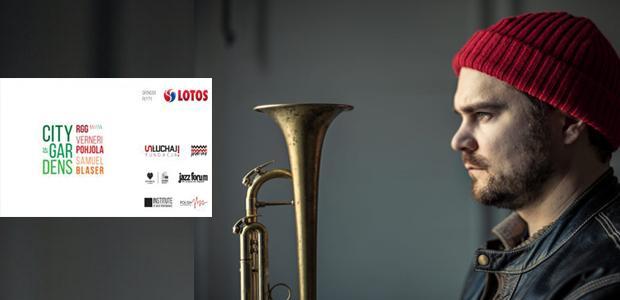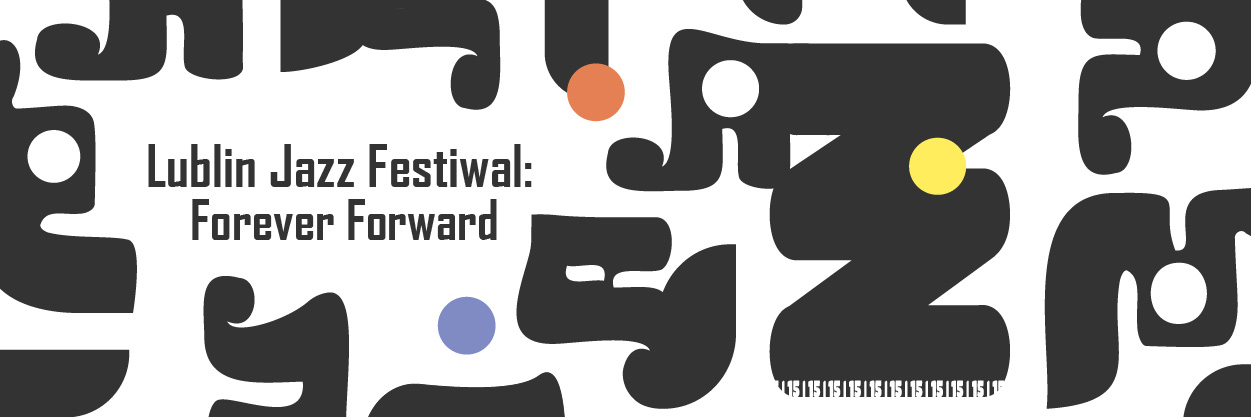I love to play with beautiful musicians – interview with Verneri Pohjola

The album „City of Gardens” is a recording of the concert that you played with the trio RGG and the trombone player Samuel Blaser last year. How do you remember that event, how did you feel playing in that quintet?
I remember the concert being very relaxed and comfortable, considering the setting of a big concert hall. Plus it's usually challenging playing with someone for the first time, which was the case for me with Samuel Blaser. But it felt very natural and inspiring.
It seems like you established a special connection with Samuel Blaser. Your interplay, dialogues and musical „discussions” seem to be its proofs... You haven't played together before though!
It was easy to connect with him, and the band really supported us so we could really do what we wanted. And I do have a special place in my heart for trombone players. My brother is a trombone player after all. Trombone has to be played with soul and Samuel is a really soulful soul.
You have performed with the trio RGG for some time already, you also took part in sessions with Maciej and Krzysztof, next to both of them or Maciej only. How do you communicate with them musically?
Yes, we did have an improvisation session the next morning. We have a mutual respect for one another and we're all interested in just letting things happen, rather than forcing. It takes a lot of trust.
How do you discover that you can trust a given musician on stage? How quick does it become obvious that you can improvise and unveil art together with mutual trust?
The best way is just to go on stage or in studio together. Of course not every time is the same but usually you can find out pretty easily from the first tunes you play.
What is for you more interesting: performing the compositions with well-fixed structures or freely improvising?
Both can be very interesting. But I consider myself a improviser first and foremost. So as long as there is room to be just that, it doesn't really matter.
How would you describe your state of mind while improvising? What leads your music then, what organises it – intuition, imagination, other musician's ideas?
I try to avoid forcing anything and just to be open to the situation. I want to trust my reactions and not to plan too much. Although planning before the gig is very important so that you have a structure to fall back to and also to break. My state of mind is usually not very self conscious. Thinking usually ony gets in the way.
Is any of your current projects – duet with the drummer Mika Kallio, your quartet or the quintet – your main occupation? Is there a setting with which you are yourself the most associated?
Right now I have been finding a lot of new inspiration playing the duo with Mika Kallio. Also rediscovering older ideas has been a part of our album „Animal Image”. I however have realized that I need to have at least some amount of variety in the music I play, in order to stay inspired and keep improving. Maciej Garbowski and RGG have in their part helped me find my musical self too. I love to play with beautiful musicians.
Which means...
A beautiful musician is one with honesty and passion for the music he or she plays. It doesn't matter if they're "successful" in the financial and social meaning of the word. Motivation to play has to be musical, not something else like money or competition.
Apart from the duo album with Kallio, you also recorded with Olavi Louhivuori. What is so fascinating for you while playing with drummers?
There are probably many reasons. Rhythm is one of the most important. In improvised music you need a lot of rhythm, both in time and rubato. And dramaturgically drums are just essential. Playing just with a drummer gives both a lot of freedom and responsibility.
What is this special responsability about?
I mean that the fewer musicians there are playing together, the more responsibility you need to take for the whole. You can't hide behind someone else. Neither can you hide behind a conventional sound of a jazz group. You have no harmonic function and no bass function either. You need to be able to uphold intensity and tell a story by some other means.
How does it feel to be a jazz musician in Finland? How do you perceive the music scene there and the opportunities to create improvised art?
Well, it is a small scene but very lively and top quality. Let's say you have to create your work by yourself most of the time. But it's a good scene for just that. A lot of really good musicians. Lots of different styles as well.
And let's talk a little bit about Poland. You have had contact with our musicians for a few years - e.g. with Adam Bałdych on his album "Imaginary Room" or now with the trio RGG. Is there anything you find specific to our jazz musicians?
Most Polish musicians I've met are very passionate about their art. Also I think that the level of instrument control is very high.
And how do you perceive Polish audience? Are they careful listeners?
Polish audience and music scene is very good to artists. There is a great respect towards the artist, that is somehow different from a lot of other places in the world. I always feel very respected when in Poland. And I'm incredibly grateful for that. It makes me want to play in Poland more every time.
What were your biggest inspirations as far as the trumpet is concerned?
My original spark to start playing trumpet was the heroic themes of Hollywood movies, such as Indiana Jones and Star Wars. I started with classical music at the age of 15. Quite soon I got into improvisation and jazz music. There are many individuals that have inspired me with their music. Tomasz Stanko is definitely one of them. But also more traditional players like Kenny Dorham, Clifford Brown and even Roy Eldridge. But the guy who changed my life was Per Jørgensen from Norway. His presence on stage and sound of his trumpet just made such an impact on me that it changed the way I listen to music forever.
- Aby wysyłać odpowiedzi, należy się zalogować.







